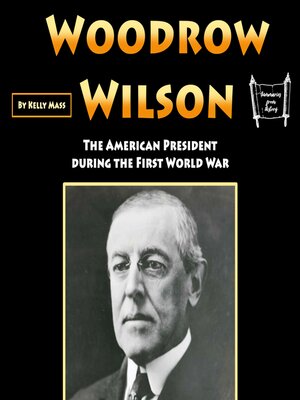Woodrow Wilson
audiobook (Unabridged) ∣ The American President during the First World War
By Kelly Mass

Sign up to save your library
With an OverDrive account, you can save your favorite libraries for at-a-glance information about availability. Find out more about OverDrive accounts.
Find this title in Libby, the library reading app by OverDrive.



Search for a digital library with this title
Title found at these libraries:
| Library Name | Distance |
|---|---|
| Loading... |
This audiobook is narrated by a digital voice.
Thomas Woodrow Wilson was born on December 28, 1856, in Staunton, Virginia, into a world that would soon be transformed by civil war and reconstruction. The son of Joseph Ruggles Wilson, a prominent Presbyterian minister, and Janet Woodrow Wilson, daughter of a Scottish immigrant family, young Wilson grew up in an environment that valued education, moral rectitude, and intellectual discourse. His father's position as a leading figure in the Southern Presbyterian Church provided the family with social standing and exposed Wilson to the power of oratory and moral persuasion that would later characterize his own public speaking.
The Wilson family's experience during the Civil War profoundly shaped the future president's worldview. When Wilson was barely four years old, the family moved to Augusta, Georgia, where his father served as pastor of the First Presbyterian Church. The young boy witnessed the devastation of war firsthand, seeing Confederate soldiers march through the streets and observing the economic and social upheaval that followed Confederate defeat. These early experiences instilled in Wilson a deep appreciation for order, stability, and the importance of strong leadership during times of crisis.
Wilson's childhood was marked by academic struggles that would seem ironic given his later scholarly achievements. He did not learn to read until he was nine years old, a delay that modern scholars attribute to what was likely dyslexia, though the condition was not understood at the time. This learning difficulty forced Wilson to develop alternative methods of acquiring and processing information, including an exceptional memory and strong verbal skills. His father recognized these abilities and spent considerable time tutoring his son, emphasizing the importance of clear thinking and precise expression that would become hallmarks of Wilson's intellectual style.







